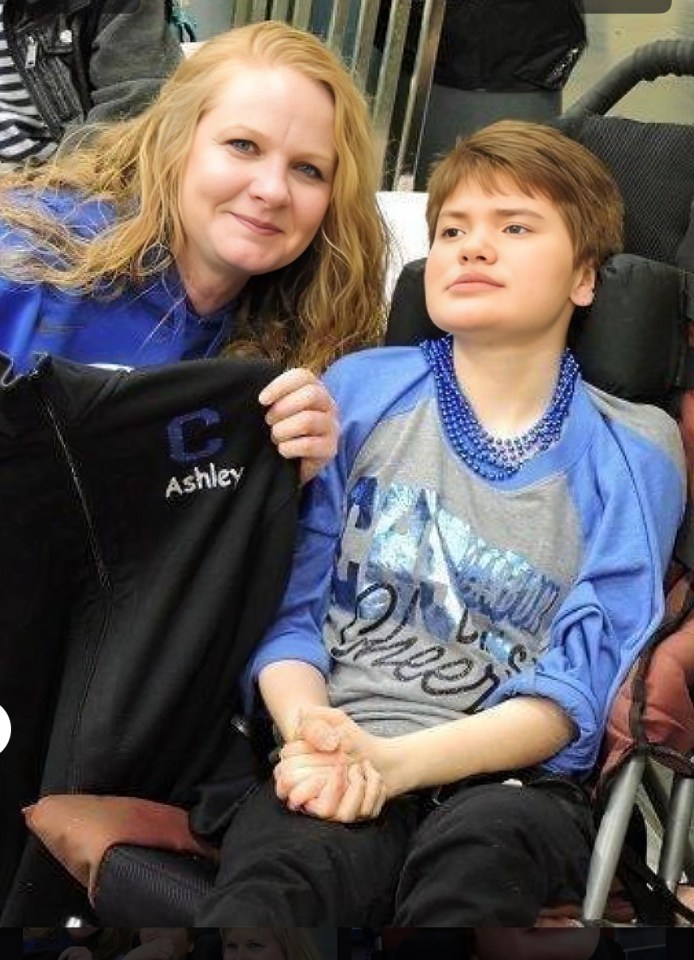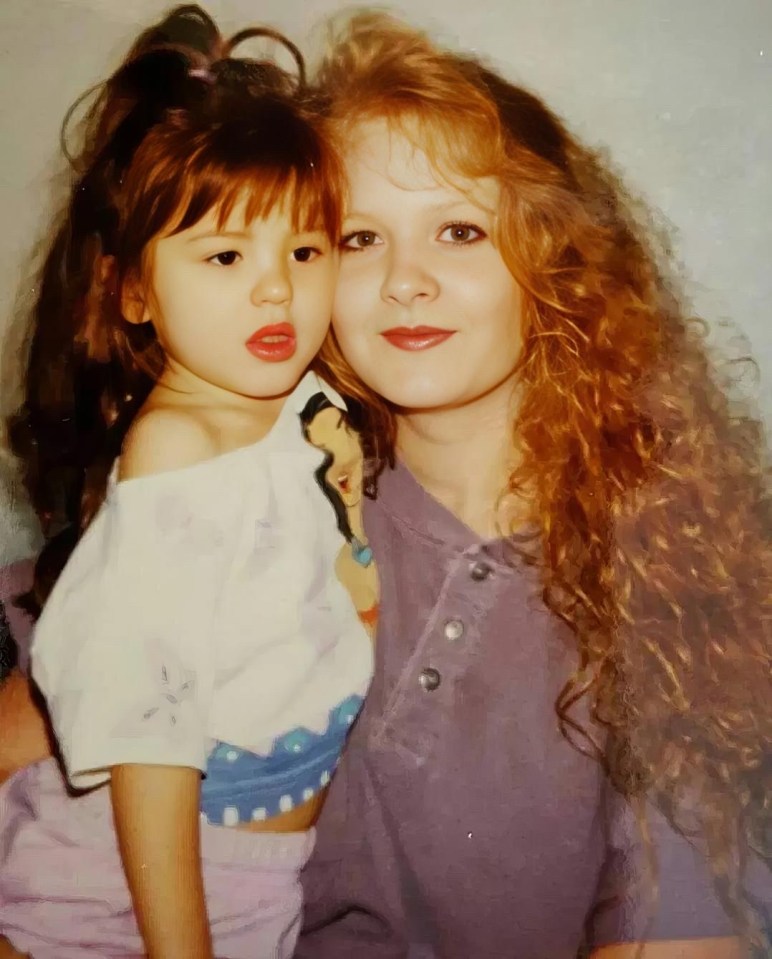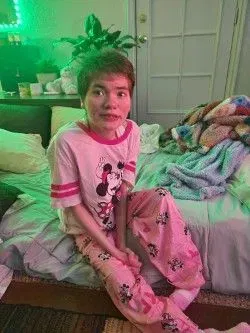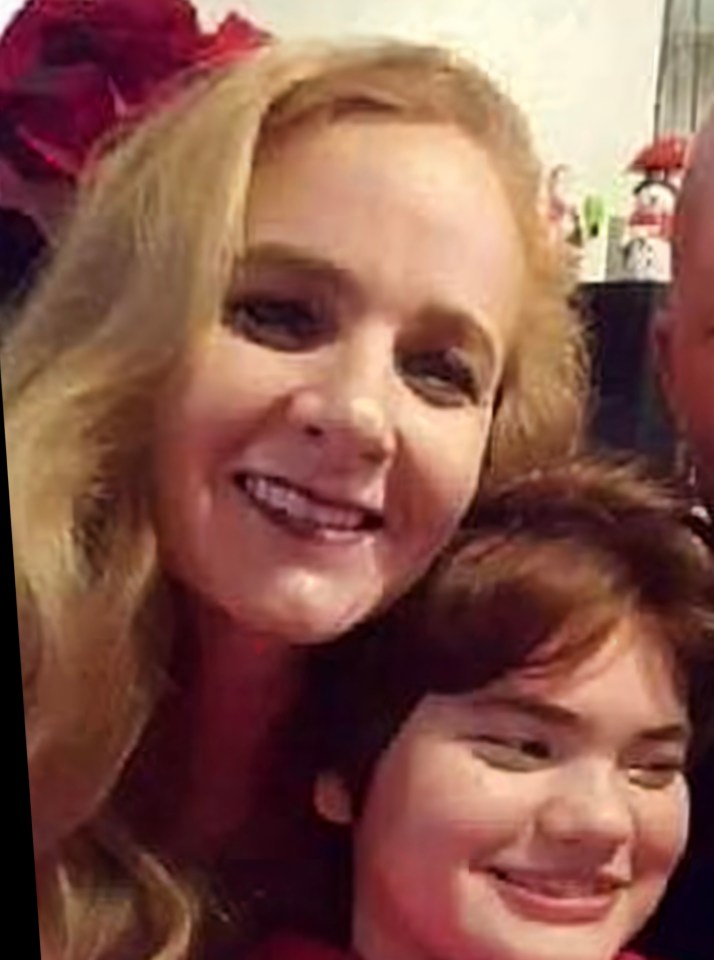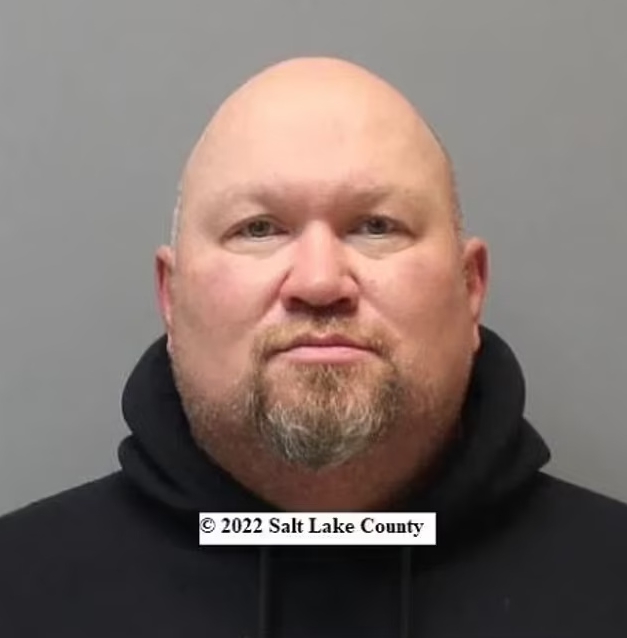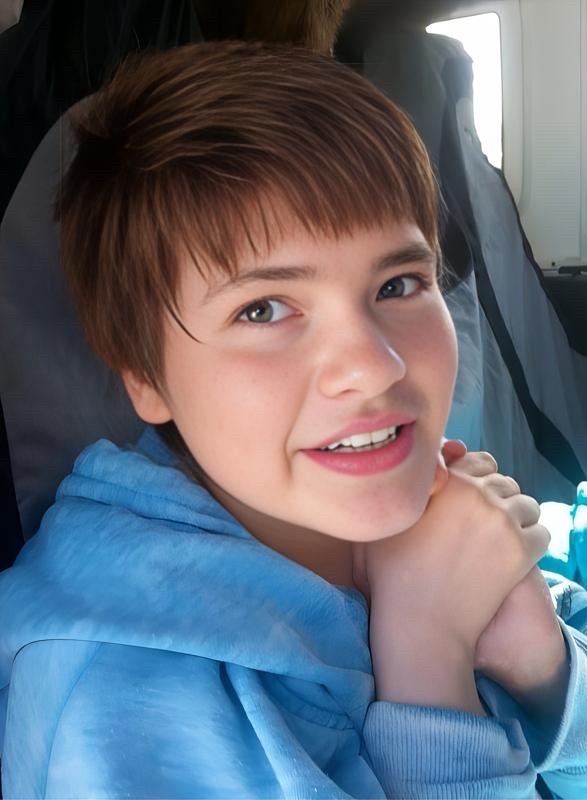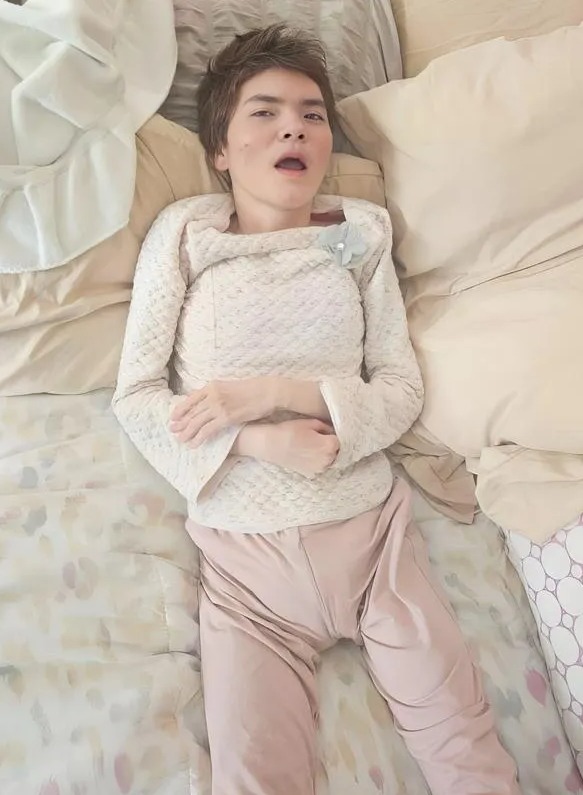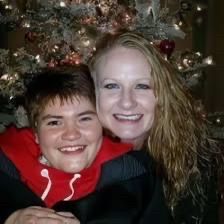I set up a nanny cam to monitor my disabled daughter’s seizures… then her step-dad walked in – the vid made cops cry
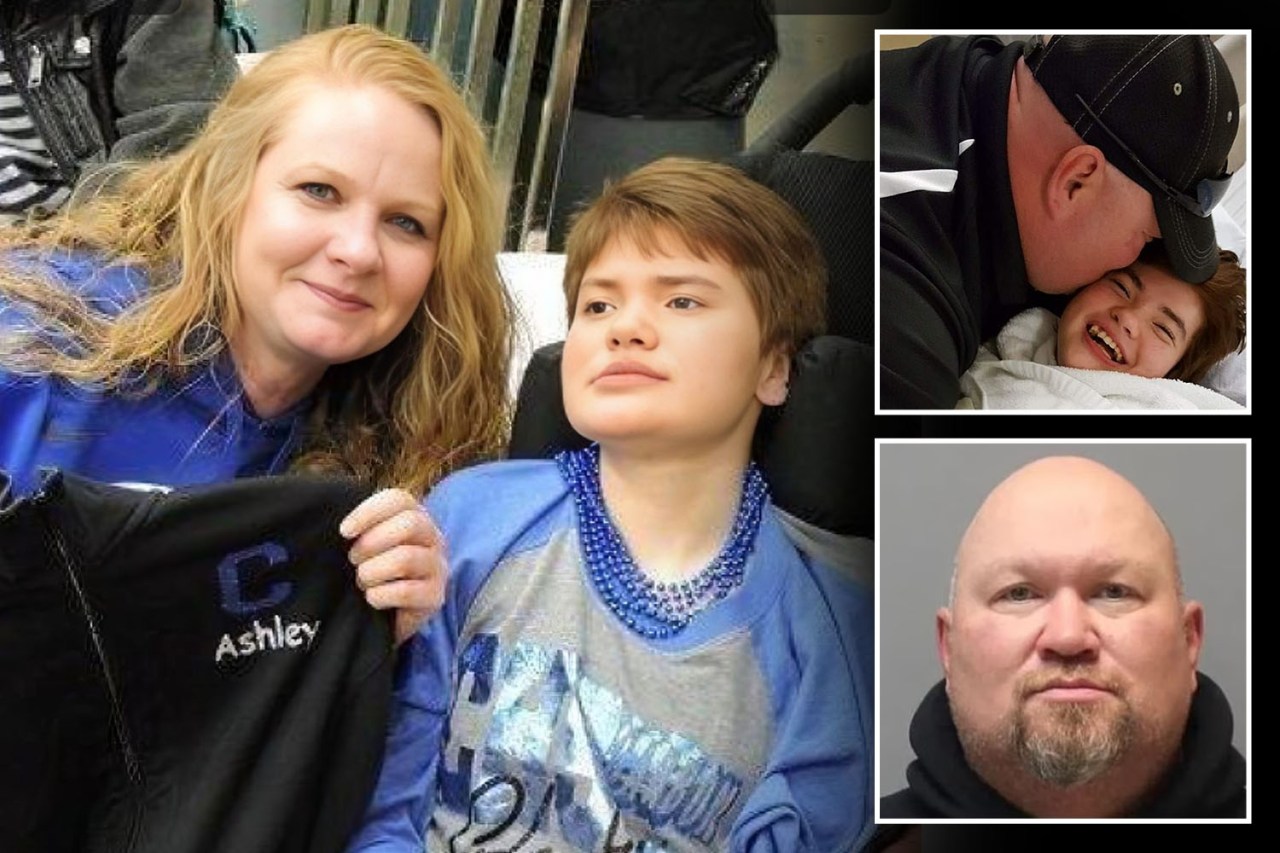
WHEN Paula Vigil set up a nanny cam in her daughter Ashley’s room, nothing could have prepared her for what it would capture.
Ashley had Rett Syndrome, a neurological condition that meant despite being 30, she had the body of an eight-year-old and the mental capacity of a nine-month-old baby, needing constant monitoring for debilitating seizures.
Her mum set up the camera in order to keep track of her daughter’s fits, but it exposed the most horrific secret that Ashley had no way of voicing.
As she scrolled through the footage, Paula stopped on a single frame that captured the man she loved, her husband Brian Kenneth Urban, sexually abusing her daughter.
Paula says: “In that split second my entire world changed forever.
“I started hyperventilating, my brain couldn’t fathom what I’d just seen.
“Nothing could have prepared me for what I saw and now I can never forget it.”
Trainee social worker Paula, 51, lives in Price, Utah, USA, and is mum to Ashley, who tragically passed away last year aged 31, and a younger daughter who is 26.
She was just 18 when she had Ashley with her high school sweetheart and the pair broke up shortly after she was born in 1992.
“I graduated from school and was a single mother determined to give my child the best care possible,” Paula says.
The first year of Ashley’s life was "normal" according to her mum, but at 18 months she noticed that her daughter was falling behind in her development.
“She stopped making eye contact, started clasping her hands together and rocking back and forth,” Paula remembers.
“She was struggling to walk and her balance only worsened as time progressed.”
When her daughter was 12 months old, Paula reconnected with Ashley’s dad and the pair married in March 1998.
'Grateful for diagnosis'
“Ashley started having up to twenty seizures a day and it wasn’t until we’d seen hundreds of specialists that she was diagnosed with Rett Syndrome at eight years old ,” Paula says.
Rett Syndrome is a rare genetic disorder that affects brain development, resulting in severe mental and physical disability.
In Ashley’s case her body developed to the size of an eight-year-old and she could giggle and understand her name but was non-verbal with the mental capacity of a nine-month-old baby.
“I was grateful to finally get a diagnosis,” Paula says.
“But it was difficult. At the time, there was no internet. I had to borrow books from the library and there was little or no information in them.”
Paula and Ashley’s dad divorced in July 2016 after financial difficulties caused a crisis in the relationship.
After money struggles left them homeless, Paula and her daughters moved back home with her mother.
But despite all the challenges, Ashley thrived against all odds.
“Doctors had first told me she might not live past the age of 11,” Paula says.
“When she hit 12 and was smiling and giggling, I was thrilled, the medication was controlling her seizures.
“But I was all too aware that children who have the syndrome plateau and then often deteriorate rapidly. Every moment with her was precious.”
After her divorce Paula says any downtime she had was spent on Facebook as she was able to socialise without leaving the house.
And at the end of 2016, she received a Facebook message from Brian Kenneth Urban.
“He’d been a jock at my high school while I had been an oddball,” she says.
“I was surprised to hear from him, since we hadn't exactly got along well then.”
Urban, 48, was a railroad manager, divorced and living in Wyoming.
“He told me he’d seen my posts about Ashley and thought she and I were amazing,” Paula says.
“I was flattered by the compliments and the fact that he was showing an interest.”
Urban continued to show an interest and Paula eventually agreed to go for a coffee and the pair began dating.
“It was great to have the extra support and I truly believed he loved me," she says.
“Brian was Amazing with Ashley, he helped me take her to appointments and contributed to our bills."
In April 2019, the pair married and when Ashley started to experience more severe seizures, Urban became Paula’s rock.
“Brian convinced me he loved both my girls,” she says.
“He was extra loving to Ashley, it seemed to me that he understood her needs and was there for her in the way a stepdad should be.”
In June 2022, the family moved to South Jordan, in Utah, to be closer to the University of Utah hospital where Ashley, who was now 30, received specialist treatment.
'Sick with worry'
A month later, when the seizures continued worsening, Paula was asked to monitor the seizures using cameras so the specialists could understand the changes.
“I was sick with worry about my daughter. I’d recently been diagnosed with Multiple Sclerosis and Brian’s support was critical,” says Paula.
Urban helped Paula to fit a wall-mounted indoor security camera on either side of Ashley's bed and also installed CCTV cameras in other rooms and outside the house.
“Brian insisted I go out for daily walks to help my MS,” Paula recalls.
“When he lovingly installed a tracker on my phone complete with an alert, telling me if ever I fell while walking, he could find me, I was overwhelmed by his concern.
“Ashley was regressing and despite being 30, I was aware she had a limited lifespan and his support meant more than ever.
“I couldn’t believe we’d been so lucky to find such a caring man.
“It would fill my heart with joy to watch him read to Ashley or carry her to our car.
“Looking back, I now realise Brian was grooming me, isolating Ashley and myself and could track me wherever I went.”
In October 2022, Paula took her mum to see a play for her 80th birthday.
“I very rarely went out and Brian was on hand to offer to care for Ashley that night,” she says.
“Brian had babysat Ashley when I went to the shops and he knew her routine. I was touched by his offer.”
The next morning, after getting home from her walk, Paula watched the CCTV to check how her daughter had slept and came across the horrifying footage of Urban assaulting her daughter.
“My blood ran cold,” she recalls.
“I couldn’t understand what I was watching and then it became horrifically clear.
“Seeing him, naked, looming over my poor defenceless girl was unbearable.
“I wanted to grab Ashley and leave the house but I knew I could not lift her myself.”
I was beyond heartbroken knowing I hadn't been able to protect her from evil
Paula Vigil
As tears ran down her cheeks, Paula suddenly froze as she heard Urban making his way downstairs.
“My brain was spinning, I knew that I had to keep my cool,” she says.
“If he realised what I discovered, he could well destroy the evidence or hurt me or Ashley.
“As he walked into the kitchen, I brushed the tears from my cheek and made an excuse to go to the garage and grab something from storage.
“I knew if he got a proper look at me, he’d know.”
Paula got into her car, where she called the police and begged them to meet her at the hotel down the street.
“Brian also had a tracker on my phone so I couldn’t simply drive to the police station without raising suspicion,” she says.
'Worst thing they'd ever seen'
When officers arrived, Paula blurted out what she’d discovered and showed them the footage from Ashley’s bedroom.
“The look on their faces, the tears in their eyes said it all,” she says.
“They told me that in their 20 years of service it was the worst thing they had ever seen and I believe them.”
Worried about Urban’s reaction, the mum told him that her other daughter had been assaulted and that the police needed to come into the home to interview her.
“Brian started chatting to the officers and walked outside,” she recalls.
“That’s when they arrested him.”
Paula ran to Ashley’s room, where she held her daughter for hours on end.
“I struggle to remember the rest of that day,” she says.
“Ashley had to be examined at the hospital. Police officers, who'd had to watch the whole video, something I'd refused to do, told me Brian was seen fiddling with the cameras.
“We worked out he had been turning the cameras off whenever he wanted to assault Ashley, so no one could find out.
"In the past, I had only seen him being kind to Ashley. He seemed like a 'normal stepfather'. I never spoke to him again. I can only assume he was hiding these secrets."
The four stages of Rett syndrome - signs and symptoms
SOME children are affected by Rett syndrome more severely than others, but the condition is described in four stages.
Stage 1: early signs
The child will appear to develop and grow normally for at least six months.
Then the following subtle signs may appear:
- low muscle tone (hypotonia)
- difficulty feeding
- unusual, repetitive hand movements or jerky limb movements
- delay with development of speech
- mobility problems, such as problems sitting, crawling and walking
- lack of interest in toys
Stage 2: regression
During this stage, the child starts to lose their abilities (usually around the ages of one and four).
Signs at this stage include:
- loss of the ability to use the hands purposefully – repetitive hand movements are often difficult to control and include wringing, washing, clapping or tapping
- periods of distress, irritability and sometimes screaming for no obvious reason
- social withdrawal – a loss of interest in people and avoidance of eye contact
- unsteadiness and awkwardness when walking
- problems sleeping
- slowing of head growth
- difficulty eating, chewing or swallowing, and sometimes constipation that may cause stomach aches
- problems with heart rate or heart rhythm
Stage 3: plateau
During this stage, some of the stage 2 symptoms may get better - for example, there may be improvements in behaviour, with less irritability and crying.
The child may become more interested in people and their surroundings, and their walking may also improve.
Other symptoms at this stage include:
- seizures
- irregular breathing patterns may get worse – for example, shallow breathing followed by rapid, deep breathing, or breath-holding
Stage 4: deterioration in movement
This stage can last for years or even decades.
The main symptoms are:
- development of a spinal curve (the spine bending to the left or right side), known as scoliosis. This is more likely from the age of six years, and the risk reduces after puberty
- muscle weakness and spasticity (abnormal stiffness, particularly in the legs)
- losing the ability to walk
Communication and brain function don't tend to get any worse.
Seizures also usually become less of a problem during teenage and early adult life, although they will often be a lifelong problem to manage.
Source: NHS
In January 2024, Urban admitted two counts of rape and three of forcible sexual abuse at a west Jordan District Court.
Urban told the court: “During this horrible event I was in a dreamlike state where reality felt like a dream.
“I still today would never believe this was actually possible.”
After watching the tape, the judge hearing the case rejected any offer of a plea deal and said all sentences would be served consecutively.
The most the judge was allowed to give Brian under the current law was a minimum of 13 years, with the possibility of parole.
Paula was told by the prosecutor that despite her disabilities, Ashley was regarded as an adult woman, so there would be no mandatory sentence.
"At the time in Utah if a person is raped and their attacker found guilty, the severity of their sentence was then determined by whether the victim was an adult or a minor," says Paula.
"There was no substantive consideration given as to an adult victim’s mental capacity.
"It meant there were different mandatory sentences for children rape and adults who were raped. Adult rapes carried a lesser punishment. I was outraged at the discrepancy."
I opened the door and let evil into my daughter’s life
Paula Vigil
In total, Urban was jailed for a minimum of 13 years, but good behaviour and parole considerations could mean he would be eligible for release earlier.
Determined to stand up for disabled adults like Ashley and ensure the criminals who attacked them were properly punished, Paula and a local solicitor drafted a new law to impose mandatory sentences on people who offended against a disabled adult or any other especially vulnerable person.
“I was not taking no for an answer, I had to do this for Ashley,” says Paula.
"We had protests and campaigns across Utah. The support was amazing."
In March this year, politicians in Utah agreed to pass the law and Paula was there to watch the Governor of Utah sign Ashley's Law into being.
Now predators like Urban will face a minimum sentence of ten years to life.
Tragically the same month Ashley passed away in her sleep.
“She never recovered from the brutal assaults. I believe the increase in her seizures could have been impacted by the assaults. We have no way of knowing properly. Ashley could never tell us.”
Paula is now trying to process the devastation of Urban’s betrayal as well as losing her darling daughter.
“I was beyond heartbroken knowing I hadn't been able to protect her from evil,” she says.
“Looking back at my time with Brian has been devastating as every gesture I took as a kindness was part of his sick plan.”
Paula is studying social work at the University of Utah and wants to use her experiences to help other vulnerable people in her state.
“I opened the door and let evil into my daughter’s life,” Paula says.
“Evil does exist, and it walks in the front entrance. But I know Ashley is cheering me on from heaven and what I do now will protect innocent lives on earth.”


